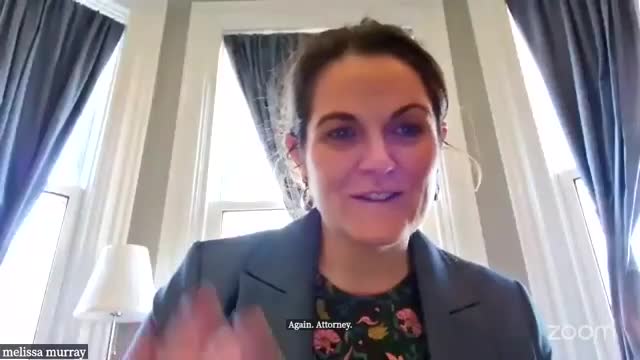Committee counsel reviews conflict-of-interest, open‑meeting and public‑records duties for school committee members
Get AI-powered insights, summaries, and transcripts
Subscribe
Summary
Attorney Melissa Murray reviewed Massachusetts conflict‑of‑interest law, the open‑meeting law and public‑records obligations, emphasizing training, disclosure, email retention and limitations on private deliberations among a quorum of members.
Attorney Melissa Murray, counsel to the Springfield City School Committee, delivered an overview of three legal obligations for committee members: the conflict‑of‑interest law, the open‑meeting law and the public‑records law.
Murray said the conflict‑of‑interest statute (Mass. Gen. Laws ch. 268A) prohibits bribery, gifts over $50, misuse of position, nepotism and false claims; she noted municipal employees — including school committee members — must complete the state’s online conflict‑of‑interest training upon taking office and every two years thereafter. Murray also described a one‑year post‑employment restriction on participating in matters a former municipal employee handled in the last two years of service.
On the open‑meeting law (Mass. Gen. Laws ch. 30A), Murray warned that any deliberation by a quorum — including emails or electronic communications that express opinion — can trigger an open‑meeting violation. She walked members through the five common exceptions (inspections, conferences, attendance at other public body meetings, quasi‑judicial proceedings and town meetings) and reiterated the 48‑hour public notice requirement for regular meetings.
Murray explained executive‑session rules: a body must begin in open session, state the reason for executive session and indicate whether it will return to open session. She summarized the three frequently used executive‑session reasons for school committees: personnel reputation/discipline, contract negotiations or litigation strategy.
On public records, Murray said all government records are presumed public unless a specific exemption applies; email is a public record and should be maintained on the district server. She recommended that members use official district email accounts for public‑business communications and noted the municipality must designate a records access officer to process public‑records requests.
Committee members asked for follow‑up materials and annual certification tracking. Murray said her office can compile a compliance spreadsheet or the executive secretary can maintain records of training and open‑meeting certifications. Miss Hurst, Mister Collins and Miss Harris raised specifics about prior local practice for certification tracking and records access; Murray agreed to provide materials and to include social‑media guidance on whether posts constitute public records.
